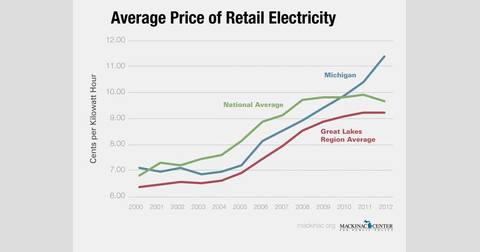Video Report: Teachers Hope Their Win Against Union Emboldens Others
Teachers Miriam Chanski and Ray Arthur say they hope their victory in getting out of the Michigan Education Association will embolden the 8,000 other teachers who have chosen not to pay union dues this year.
Chanski and Arthur filed unfair labor practice complaints against the MEA when the union failed to honor their right not to pay dues or fees under Michigan's right-to-work law. The union claimed the teachers failed to give notice in August as required by union bylaws and because of forms they signed when they were hired as teachers.
The Mackinac Center Legal Foundation represented Arthur and Chanski in their cases before the Michigan Employment Relations Commission and is helping other union teachers in similar cases against their local unions and the MEA. Another teacher, Susan Bank, is being represented by the Legal Foundation in her case filed in Oakland Circuit Court against the MEA.
The executive director of the MEA admitted under oath at a MERC hearing that the union has been unable to collect dues from 8,000 teachers.
Chanski said she thinks those teachers, like her, were given misinformation about the August window. Chanski, who teaches kindergarten in the Coopersville Public Schools, said she has gotten a good deal of support from teachers and she looks forward to being able to save more money to cover personal expenses.
Arthur, a physical education teacher and coach in Petoskey, plans to retire at the end of this school year after 34 years of teaching. The Hall of Fame wrestling coach welcomed the savings in dues he will get this year. He said he believes the MEA made a mistake in how it dealt with its members who want to leave the union, and that the union's actions may have caused an unnecessary backlash.
"If I'm a wrestling coach and I'm losing eight members of my team, I'm not going to get them back by berating or threatening them," Arthur said. "I'm going to talk to them and tell them the value of being in our organization and that we like to have them for our service and if they change their mind we would love to open our doors and have them."
Michigan Capitol Confidential is the news source produced by the Mackinac Center for Public Policy. Michigan Capitol Confidential reports with a free-market news perspective.

 Dues-skim union has no bargaining power for home care providers
Dues-skim union has no bargaining power for home care providers
 Right-to-work no longer rules in private sector
Right-to-work no longer rules in private sector
 Hydra-Lock employees vote to decertify their union
Hydra-Lock employees vote to decertify their union

 37 states have cheaper electricity than Michigan does, report says
37 states have cheaper electricity than Michigan does, report says
 State climate conference to tout clean energy plans that will raise electricity costs
State climate conference to tout clean energy plans that will raise electricity costs
 Unclear whether MSU Trustee resides in Michigan or Texas
Unclear whether MSU Trustee resides in Michigan or Texas